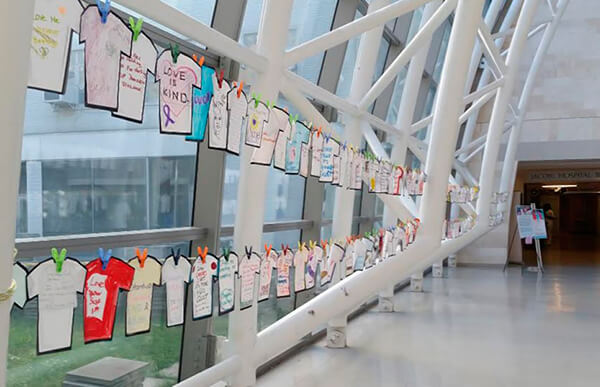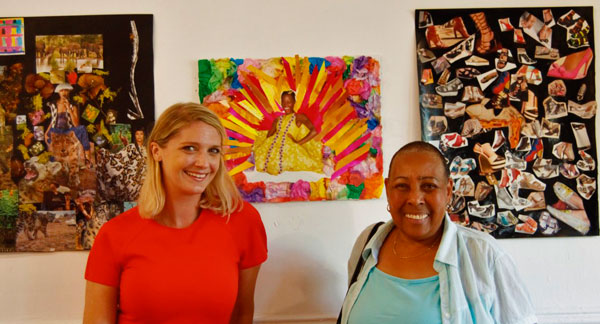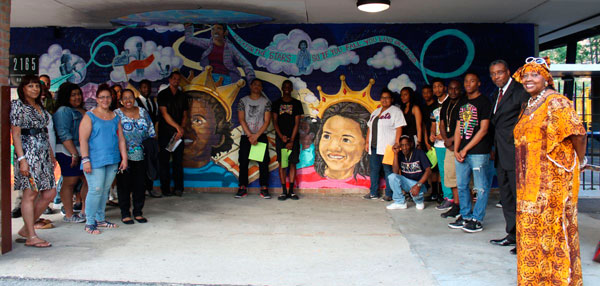Art can help heal even the most deepest of personal scars.
For the entire month of October, Jacobi Medical Center served as host to the ‘Clothesline Project’, a visual display reveals violence against women and as its namesake suggests features shirts decorated to represent a particular woman’s experience whether a survivor or someone close to one which are hung from a clothesline.
Originating in Massachusetts in 1990, the Clothesline Project’s mission is to bear witness to the domestic violence survivors and victims; aid in the healing process for people who have lost a loved one or are survivors of domestic violence; to educate, document and raise society’s awareness of this problem’s extent and to provide a nationwide network of support, encouragement and information for other communities starting their own Clothesline Projects.
Jacobi Medical Center staff members and many of the hospital’s patients created their own shirts expressing their thoughts and emotions regarding this community-wide public health epidemic.
According to Karen Cohen, licensed social worker in JMC’s emergency room, the hospital has held this exhibition for four years and this year’s edition saw approximately 150 shirts on display inside Building 8’s Atrium for visitors, staff and patients to view as they pass through.
Cohen explained the project’s participants who come from all walks of life and cultures find working on these shirts to be an incredibly therapeutic experience.
“I have seen through the years people become very emotional while working on these shirts and visitors to the exhibit are always moved by all of the messages conveyed on them,” said Cohen.
Participants create shirts by cutting them out of paper and decorating them with words or designs that convey their own experiences with domestic violence and are written in different languages such as Spanish, Albanian and Creole as well as English
Some of the shirts on display send powerful messages such as “if he hits you, he doesn’t love you” and “don’t blame yourself” among many others.
Cohen shared one instance of how powerful an affect this art exhibit has had on spectators.
“It was during our first year we were holding the Clothesline Project display that I noticed a shirt that had not been there the day before and realized it was placed there some time during the night,” said Cohen.
That shirt read “Better to be alone than be beaten. My guys were always normal and boring, so I chose a guy who was edgy, wild and exciting. On our third date, he beat me up for hours. I was trapped and all the time he was laughing. Be smarter than me and follow your instincts, they will protect you.”
“I am very proud of this person for doing this and examples such as this one speak of the ability this project has in reaching people, validating themselves and finding strength in numbers,” said Cohen. “Healing is part of the puzzle that these victims need and art helps provide that for them.”
Children and adults alike have participated in the annual Clothesline Project helping to better educate people on domestic violence.
Some shirts, created by children, read “don’t hit mommy” and “stop the violence”.
Cohen said patients sometimes dedicate shirts they make to family members who have or are experiencing domestic violence.
“The Clothesline Project sparks discussion among people who’ve experienced domestic violence before and it really helps educate people,” she said
Cohen said anyone experiencing domestic violence can contact Safe Horizon’s free anonymous domestic violence and abuse hotline at (800) 621-4673.






















